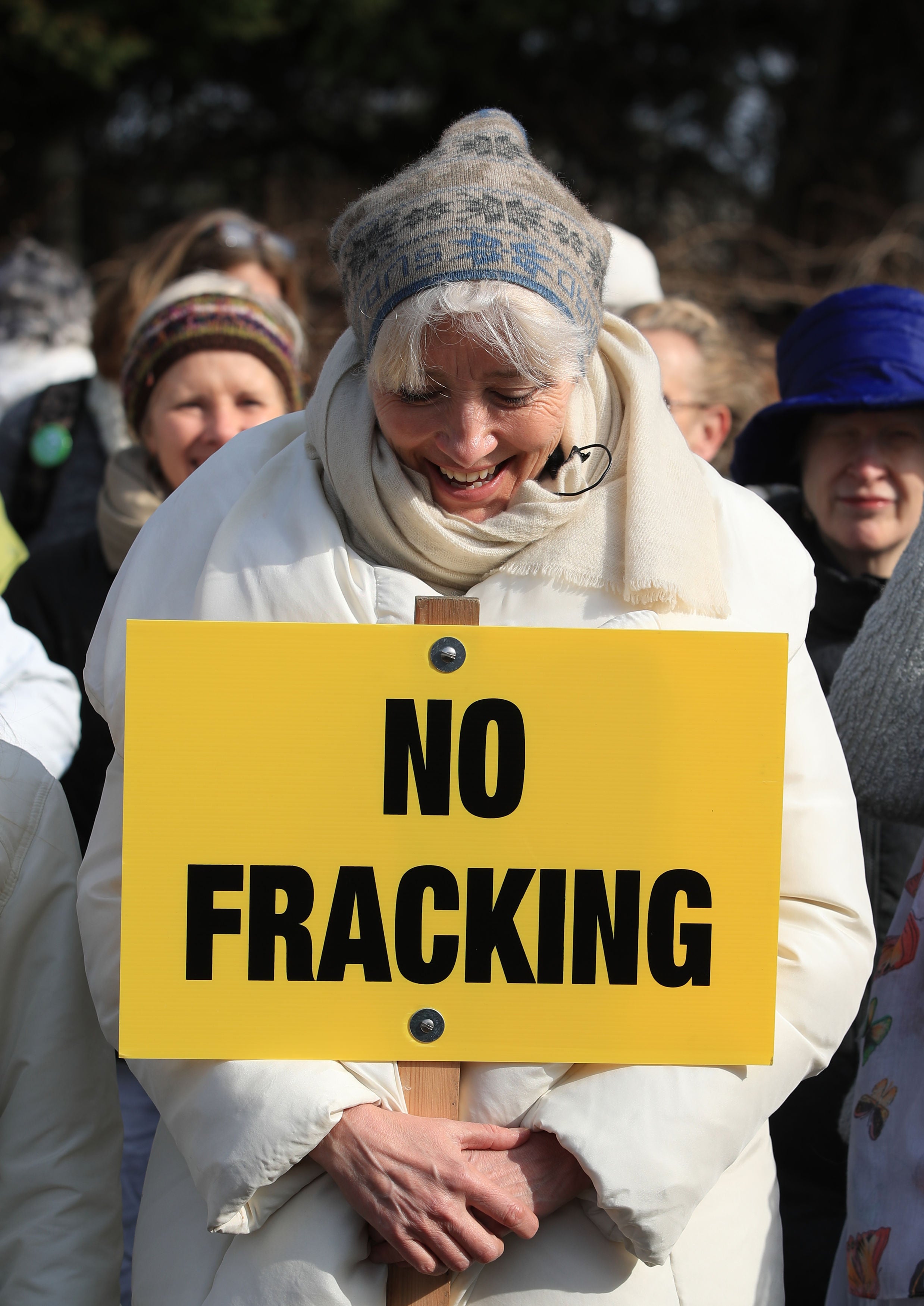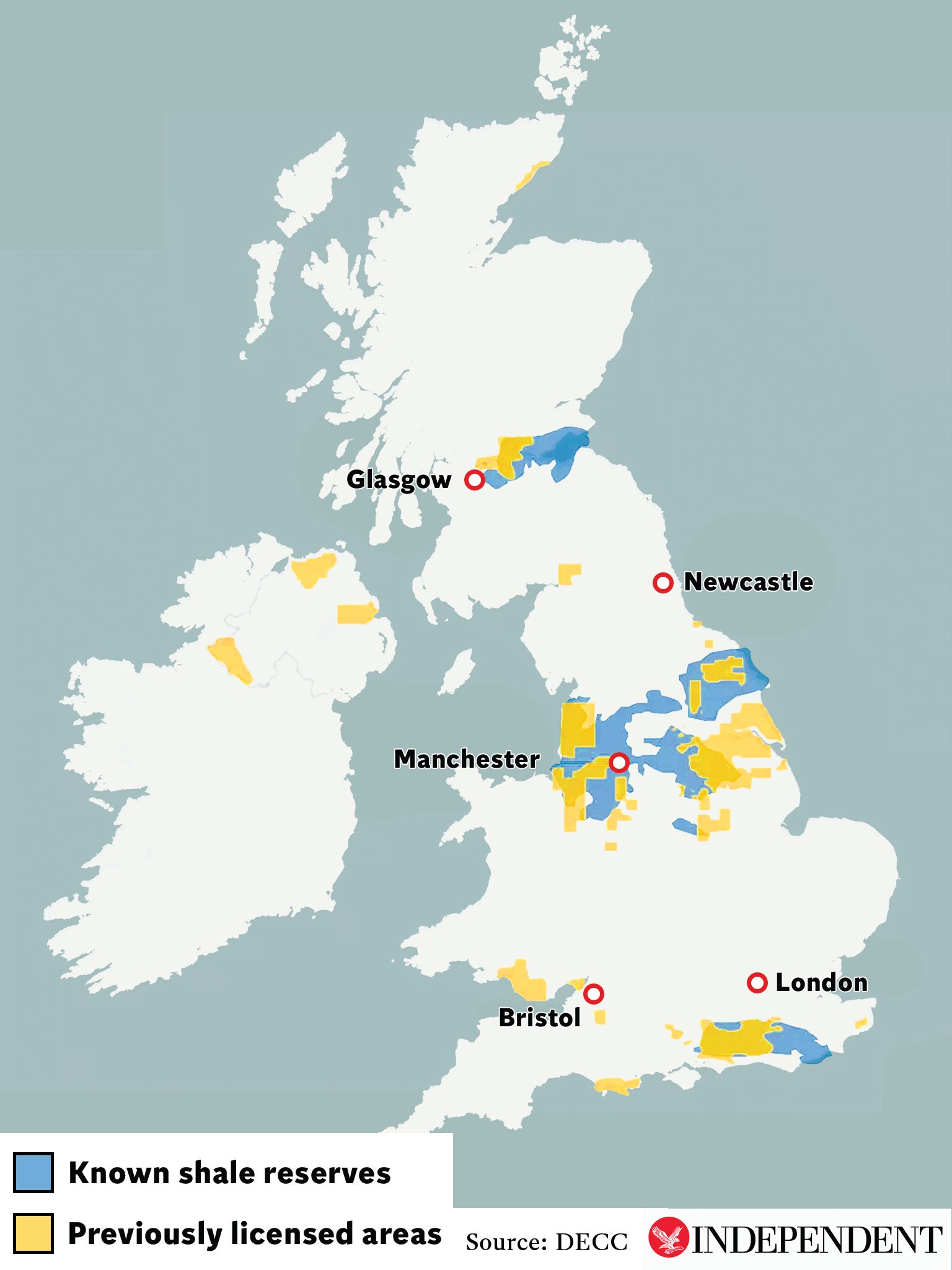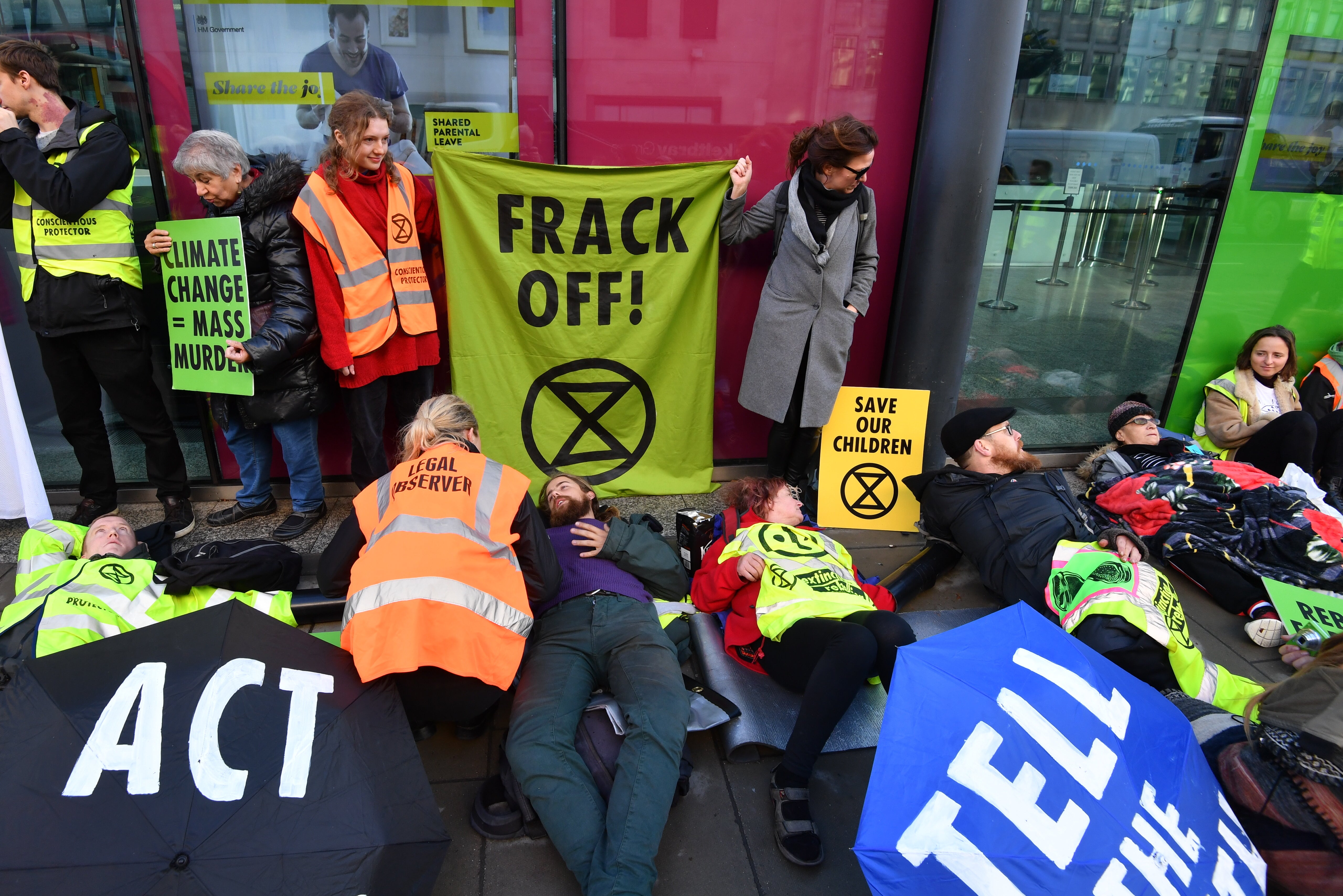Why Liz Truss’s big fracking plan will not cut energy bills
The Tories’ emotional bond with hydrocarbons and the wealth they once brought now defies reason, writes Harry Cockburn

Your support helps us to tell the story
From reproductive rights to climate change to Big Tech, The Independent is on the ground when the story is developing. Whether it's investigating the financials of Elon Musk's pro-Trump PAC or producing our latest documentary, 'The A Word', which shines a light on the American women fighting for reproductive rights, we know how important it is to parse out the facts from the messaging.
At such a critical moment in US history, we need reporters on the ground. Your donation allows us to keep sending journalists to speak to both sides of the story.
The Independent is trusted by Americans across the entire political spectrum. And unlike many other quality news outlets, we choose not to lock Americans out of our reporting and analysis with paywalls. We believe quality journalism should be available to everyone, paid for by those who can afford it.
Your support makes all the difference."In Liz we Truss", read the supportive placards during the new prime minister’s leadership campaign – a campaign in which she promised to stand by the Conservatives Party’s 2019 election manifesto.
"I want to deliver the promise of the 2019 manifesto," she said at recent hustings.
But just two days into her premiership, the trust alluded to by her supporters’ slogans is already being put to the test as she has discarded a key pledge the 2019 manifesto set out – to keep the ban on fracking.
“We will not support fracking unless the science shows categorically that it can be done safely,” the document said.
It is unclear why Ms Truss has moved so rapidly to embrace fracking, but the controversy will immediately achieve two things. Firstly it will anger her opponents – along with almost anyone who cares about the natural world or understands the energy crisis.
Secondly, it will further bolster her support among the right wing of the party, who cannot get enough of the fossil fuel economy and has been howling for fracking rigs to be allowed access to the shale deposits in the north of England.
In the Conservative Party, a major rift between MPs exists between those who support climate action and those who don’t.
These warring factions include the Conservative Environment Network (CEN), which has the support of 133 Tory MPs, accounting for half of backbench MPs, and supports government action to reduce emissions, invest in the green economy and reach the 2050 net zero target.
Opposing this group is a smaller, but highly influential group of MPs who are part of the Net Zero Scrutiny Group, which has a number of links to the UK’s most prominent climate science denial organisation – the Global Warming Policy Foundation – founded by former Conservative chancellor Nigel Lawson.

There is also an element of crossover with the powerful Eurosceptic group the ERG, recognised as "the most influential" parliamentary group "in recent history". On Twitter, Green Party peer Jenny Jones suggested Ms Truss’s support for fracking was a "dog whistle to the ERG".
Previous ERG chairmen include Steve Baker, co-founder of the Net Zero Scrutiny Group, and Jacob Rees-Mogg, who has a record of climate denialism and has this week been appointed energy secretary.
Ms Truss’s decision to overturn the moratorium on fracking came alongside the announcement of plans for the government to launch a new oil and gas licensing round, which could happen as early as next week, and is expected to lead to over 100 new licences.
At the same time as Ms Truss was in parliament announcing her intention for a huge fossil fuel recovery programme, it was also revealed that the largest single donor to her successful leadership campaign came from Fitriani Hay, the wife of former BP executive, James Hay, who gave her £100,000.
Tory MPs cling to fracking and drilling for gas and oil in the North Sea as a form of foundational myth – an emotional bond with hydrocarbons which harks back to Victorian entrepreneurial, imperialist values.
And it remains convenient, as for now, they’re still currently in receipt of huge amounts of money – even as the fossil fuel industry falls out of favour with the public and investors walk away.
But cold, hard empirical evidence makes a mockery of further investment by states in these antiquated, steampunk technologies
But while Ms Truss’s efforts to appeal to the powerful, wealthy right-wing of the party may shore up her position temporarily, the maths does not add up.

Solar and wind are the cheapest forms of power possible. UK gas-powered electricity is now costing the government an incredible nine times more to buy than electricity from renewables.
Meanwhile, there is no debate that UK fracking and new gas can reduce sky-high bills for consumers. As Ms Truss’s new chancellor Kwasi Kwarteng previously noted while business and energy secretary: "Even if we lifted the fracking moratorium tomorrow, it would take up to a decade to extract sufficient volumes – and it would come at a high cost for communities and our precious countryside.
"Second, no amount of shale gas from hundreds of wells dotted across rural England would be enough to lower the European price any time soon.
"And with the best will in the world, private companies are not going to sell the shale gas they produce to UK consumers below the market price. They are not charities, after all," he wrote in a piece for the Daily Mail just a few months ago.
Friends of the Earth described Ms Truss’s decision to overturn the moratorium as "a perplexing move".
A spokesperson said: "Fracking is a failed industry and the chancellor said himself that it won’t lower our energy bills.
"Anyone who thinks that bringing it back will solve the energy crisis is living in cloud cuckoo land."

Instead, analysts are again insisting the government take action which can actually make a difference – investment in insulation, heat pumps and supporting renewable energy.
Jess Ralston, senior analyst with the Energy and Climate Intelligence Unit said: “All the experts and even the industry agree more UK gas won’t bring down British bills. To bring down bills we need to use less gas by investing in insulating homes, a measure which could be cost neutral to the Treasury given it will spend billions on the price cap freeze.
“There is a real danger of the government serving up a red herring with local communities likely to oppose fracking rigs while focus is diverted from efficiency and renewables which can be quick to introduce and are popular, rather than unpopular, with the public."




Join our commenting forum
Join thought-provoking conversations, follow other Independent readers and see their replies
0Comments